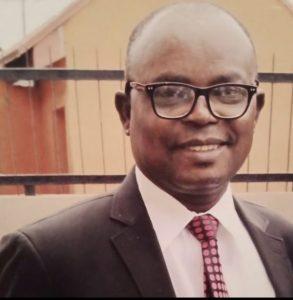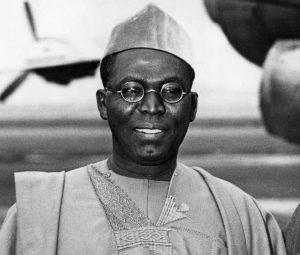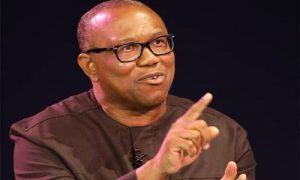I hope history will be fair to President Muhammadu Buhari who had in 2017 planned to declare an emergency on education with a view to paying attention to the sector meaningfully. Our leader has been a great procrastinator too. On November 13, 2017, the Buhari administration organised a remarkable Retreat on education tagged “Federal Executive Council Retreat on Education”, which was widely reported even in this column as “Lesson Notes on Buhari’s Retreat on Education” (November 19, 2017). As I had reported then, the well-organised event reinforced faith in the capacity of the administration to get to the roots of lack of progress in all spheres and indeed mediocrity in all our ways.
In fact, the Education Minister, Malam Adamu Adamu in a well-delivered speech at the Retreat suggested that the president should declare a state of emergency on education at the end of the Retreat attended by the President and the Vice President. But in the end, among other action points, it was hinted that the declaration of emergency would be made in April 2018. Sadly, there has been nothing about that promise till the present. I was at the Retreat at the State House Banquet Hall in Abuja when the president’s unwritten concluding remarks, which artfully endorsed Governor Nasir el-Rufai’s noisy policy on mediocre teachers in Kaduna state almost took the steam out of the significance of the one-day Retreat.
It was an unusual event as even the chief host, the Education Minister Malam Adamu Adamu listened attentively during the presentations. The resource persons, notably professors Peter Okebukola, former LASU Vice-Chancellor and former Executive Secretary NUC and Emeritus Professor Michael Omolewa, former Nigeria’s envoy at the UNESCO who are quite significant in education management, were the visible experts throughout the event.
Remarkably, the resilient spirit of “implementation, implementation, and implementation” as Vice President Yemi Osinbajo, later reiterated was the silent bogeyman there. Incidentally, in one of his presentations on the strategic plan, Professor Okebukola called for, “generous political will” to implement the ministerial strategic plan. It hasn’t been implemented since 2017.
President Buhari artfully used his keynote at the Retreat to kill two birds with a stone: One, he made his point remarkable to the extent that he identified what to do to invest in education. The president hinted at a covenant with the people when he said: “…The significance of this summit is obvious. We cannot progress beyond the level and standard of our education. Today, it is those who acquire the most qualitative education, equipped with requisite skills and training and empowered with practical know-how that is leading the rest. We cannot afford to continue lagging behind. Education is our launch pad to a more successful, more productive, and more prosperous future. This administration is committed to revitalising our education system and making it more responsive and globally competitive.”
When I noticed presidential procrastination on the Retreat on Education in 2018, I asked here through this column: ‘When is the state of emergency on education?’ (https://guardian.ng/opinion/when-is-state-of-emergency-on-education/) May 06, 2022.
I would still not like to continue in the commentaries on the shenanigans and peccadillos of the current political campaign until our leader pays attention to what I called here last week, ‘Buhari’s inconclusive intervention’ on the FG- ASUU crisis.
Let us, therefore, revisit the proceedings of the 2017 Retreat on Education where the President made a promise on education that hasn’t been fulfilled. That failed promise has set the tone for today’s crisis in tertiary education. Yes, the university teachers have grudgingly resumed. They are conducting examinations on modules they couldn’t teach for eight months. There are grave consequences for the eight-month hiatus.

‘Change Begins With Education
That was the title of the Minister of Education, Malam Adamu Adamu’s address at the 2017 Retreat that would have averted today’s tragedy. He too set the tone for revival in education (before the president’s keynote) when he told a story about the Chinese. Adamu recalled that the Chinese built a Great Wall to keep the invaders at bay because they thought it would be impossible for anyone to scale it given its insurmountable height. According to the tale, unfortunately, within the first century of the construction of the wall, the Chinese were invaded three times. Reason: every time the invaders came, they did not need to climb over the wall because each time they came, they were able to bribe the guards on duty at the gate and the gate was opened for them. The significant lesson, that only good education delivers being that the Chinese took the pains to build the wall but they forgot to build the character of the guards who were supposed to secure the walls.
Adamu who noted too that, “character is everything”, also recalled another anecdote from an Orientalist who once said: “if you want to destroy the civilization of a nation, there are three ways of doing so: (a) destroy the family structure (b) destroy education and (c) lower role models. According to the ancient strategy for destruction, to destroy the family, all you need to do is undermine the role of the mother.
As the story goes, to destroy education, you should give no importance to the teacher so that the students can despise him…Then to demean the role models, you should undermine the scholars, cast doubt on them until no one listens to them or follows their teachings.
And the consequences are summarised thus: when a conscious mother disappears, and when a dedicated teacher cannot be found, and when role models are ignored, who is there to teach the young ones values? That was how the role of teachers was re-established before the president’s strategic rejection of mediocrity in teaching at that Retreat.
On his part, the Vice President, Professor Yermi Osinbajo who was there throughout the sessions was upbeat that the stakeholders and technocrats there were not cynical but uncharacteristically optimistic about the revival of education in the country. The law professor would, however, like the focal point of the ministerial strategic plan (MSP), to ensure that implementation would not suffer reverses. He would also like the final document to include some clarity on the strategic objectives of Nigeria’s education – short-term and long-term. He said, “our education terms at this juncture, should address our challenges. Our education plans should be able to solve the problems of the soon-to-be fourth-largest population on earth, Nigeria. Our strategic objectives should be able to identify what kinds of problems we should address in the next few decades…”
Osinbajo said the implementation document should also reflect elements that developed economies now leverage on, notably the science, technology, engineering and mathematics (STEM) “even as we note that the humanities are as important”.
The vice president also noted that in addressing today’s education challenges, the strategy document should not ignore how technology can assist in producing employable graduates too “as classrooms alone cannot help anymore”. He advised the technocrats and regulators to de-emphasise hectares of plots of land in approving universities as disruptive technologies can now take care of hectares of land in the virtual learning environment.
He added that in planning the e-learning platforms now, “you should invite the technology giants such as Google to the room… we must not be stuck in the way we think about education at this time. A lot of things go on in the virtual space…”
But in the main, the vice president would like the men at the centre of implementation to ensure that we, “properly identify what we want to teach, what sort of learning will be important now and how to teach them”.
Professor Osinbajo would also like the strategic plan to address specifically girl-child education and other out-of-school children all over the place. Besides, he would like the final document to include the all-important issue of “education for citizenship” as most children today lack knowledge of history, civic education and how to be good citizens.
To, Dr. Kayode Fayemi, Minister of Mines and Steel Development at the time, the modern curriculum should produce graduates that have employable skills for 21st-century challenges. He also suggested that the first-generation universities such as the University of Ibadan, Ahmadu Bello University, Zaria and University of Nigeria, Nsukka should be designated immediately as PG Schools, “Centres of Excellence and Research” only.
Mr. Udo Udoma, Minister of Budget and Planning who disclosed that the 2018 budget proposals contained up to half a trillion of Naira on education through various streams of education agreed with Dr. Fayemi that, “there should be proper investment, not just funding of education”.
The Communications and Sports Ministers also spoke on the strategy to revive education. To Mr. Adebayo Shittu, then Communications Minister, the National Assembly and the state governors should be included in consensus building to develop education because the federal legislature has a constitutional responsibility to approve funds and the 36 states have more schools than the federal government.
Meanwhile, Mr. Solomon Dalong the then Sports Minister would like the revival of sports integration into the learning modules so that there would be an all-round development of the learners.
Meanwhile, Education Minister, Malam Adamu who had wanted the emergency on education declared at the Abuja Retreat reiterated the April date when he received Niger State Governor, Abubakar Sani-Bello and some members of his cabinet at the Education Ministry headquarters in Abuja on January 29, 2018.
Adamu, who requested the support of all state governors, said: “By the end of April, we are proposing there will be a declaration of a state of emergency in the education sector all over the country”. Can we then ask our President and his wonderful Education Minister why they have failed to implement the letter and the spirit of the declarations of November 13, 2017. Where is the change Minister Adamu promised would begin with education in 2017? When is the emergency on education the president promised the nation through the minister he decorated the other day with a National Award?
As I was saying and will continue to reiterate until something happens, before it is too late, our leaders at this time should note that a child’s right to education cannot be safeguarded in conflict zones without education itself being protected. The education they ate trifling with can be a lifesaver. The 20 million out-of-school children we gable with today are easy targets of abuse, exploitation, and recruitment by militants, insurgents, and criminal gangs.
Schools should provide a safe space where children can be protected from threats and crises. It is also a critical step to breaking the cycle of crisis and reducing the likelihood of future conflicts. In the main, we can’t achieve greatness if we continue to treat teachers at all levels as worthless workers who should be the last to be paid and equipped in any pecking order. Therefore, there should be a national dialogue on how to treat teachers beyond extending their service years. We need to borrow a leaf from the Nordic countries in Northern Europe, notably Finland where teaching at all levels is the best-paid job – for national development.





















